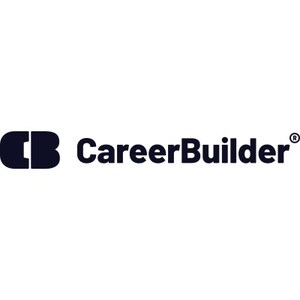CareerBuilder's New Talent Crunch Study Explores the Impact of the Skills Gap and Vacancies on Revenue and Turnover
Nearly Two-Thirds of Job Seekers Knowingly Apply for a Position for Which They Don't Possess the Required Skills
CHICAGO, June 27, 2012 /PRNewswire/ -- As companies navigate around the widening skills gap in the U.S., prolonged job vacancies are taking a toll on employee morale and the bottom line. Despite high unemployment rates, 38 percent of employers reported they currently have positions for which they can't find qualified candidates. One-third (34 percent) reported that job vacancies have resulted in a lower quality of work due to employees being overworked, and 23 percent cited a loss in revenue.
With unfilled positions often translating into longer hours for existing staff, 33 percent of employers said vacancies have caused lower morale and 17 percent pointed to higher turnover within their organizations.
CareerBuilder's "Talent Crunch" study explores the challenges associated with the skills deficit and what employers are doing to address it. The study was produced in conjunction with CareerBuilder's "Empowering Employment" initiative, a partnership effort that showcases the programs and learnings of companies who are committed to retraining workers and fueling job creation.
"If we want to see more positive movement in the U.S. market, we have to do a better job of realigning the skills of our labor force with positions that are in high demand," said Matt Ferguson, CEO of CareerBuilder. "Prolonged vacancies can result in lower quality work, lower sales and morale, and can cause a delay in creating other related positions within the organization. Fortunately, we see more companies taking matters into their own hands and putting programs in place to retrain and transition workers into their industries and fields."
Looking at enterprise organizations(1) in the U.S., which hire in the largest volume, the five areas they said are the most difficult to recruit for are:
- Engineering – 67 percent
- C-level positions (CEO, CFO, CMO, etc.) – 60 percent
- Information Technology – 60 percent
- Research & Development – 54 percent
- Production – 54 percent
To secure talent for hard-to-fill positions, half of employers of all sizes are planning to hire workers who don't have experience in their particular industry or field and train them. Thirty-one percent are planning to cross-train current employees while 19 percent are targeting talent from competitors. Nearly two-thirds are willing to stretch incentives such as offering flexible hours (25 percent), higher salary (22 percent) and remote work options (15 percent).
Two-in-five companies (41 percent) reported they currently have programs in place to help alleviate the skills gap including on-the-job training, mentoring, sending employees back to school and other efforts.
The Job Seekers' Perspective
Many U.S. job seekers – especially workers operating in industries that were hit hard by job loss during the recession – have to look to new industries and fields to find gainful employment, and the transition isn't always easy. Nearly two-thirds of job seekers (64 percent) knowingly apply for a position for which they don't possess the required skills.
For employers who are looking to reskill workers for their organizations, they're likely to find willing participants. Most U.S. job seekers – 77 percent – said they would be willing to take a job in a different field than the one they currently work in. More than half (54 percent) would be open to relocating to a new city or state.
To view the full results, go to http://careerbuildercommunications.com/talentcrunch/
(1)For purposes of this study, enterprise organizations are defined as companies which have more than 2,000 employees at locations where respondents work.
Survey Methodology
This survey was conducted online within the U.S. by Harris Interactive© on behalf of CareerBuilder among 1,648 U.S. hiring managers and human resource professionals and 2,036 U.S. job seekers (employed full-time, not self-employed seeking a job or non-employed seeking a job) ages 18 and over between February 8 and February 29, 2012 (percentages for some questions are based on a subset, based on their responses to certain questions). With pure probability samples of 1,648 and 2,036, one could say with a 95 percent probability that the overall results have a sampling error of +/-2.41 and +/-2.17 percentage points, respectively. Sampling error for data from sub-samples is higher and varies.
About CareerBuilder®
CareerBuilder is the global leader in human capital solutions, helping companies target and attract their most important asset - their people. Its online career site, CareerBuilder.com®, is the largest in the United States with more than 24 million unique visitors, 1 million jobs and 49 million resumes. CareerBuilder works with the world's top employers, providing resources for everything from employment branding and talent intelligence to recruitment support. More than 10,000 websites, including 140 newspapers and broadband portals such as MSN and AOL, feature CareerBuilder's proprietary job search technology on their career sites. Owned by Gannett Co., Inc. (NYSE:GCI), Tribune Company and The McClatchy Company (NYSE:MNI), CareerBuilder and its subsidiaries operate in the United States, Europe, South America, Canada and Asia. For more information, visit www.careerbuilder.com.
Media Contact
Jennifer Grasz
773-527-1164
[email protected]
http://www.twitter.com/CareerBuilderPR
SOURCE CareerBuilder
WANT YOUR COMPANY'S NEWS FEATURED ON PRNEWSWIRE.COM?
Newsrooms &
Influencers
Digital Media
Outlets
Journalists
Opted In





Share this article